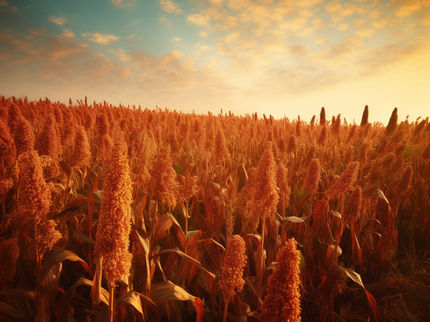Genetically modified rice could be key to tackling food shortages caused by climate change
Genetically engineering rice to have better salt tolerance could allow it to be grown in places it would otherwise fail, new research from the University of Sheffield has found
Advertisement
Genetically modified rice could be key to tackling food shortages caused by climate change

symbolic picture
Computer generated picture
- Reducing the number of stomata that rice have makes them more tolerant to salt water, according to researchers at the University of Sheffield
- As sea levels rise, seawater is reaching places it previously wouldn’t, causing increasing damage to crops
- Sheffield scientists had already discovered that rice with fewer stomata are more drought resistant, needing up to 60 per cent less water - now, they have shown that the same plants are also able to grow in salty conditions
- Rice is arguably the most important food crop on earth - it is relied on by 3.5 billion people every single day, and 30 per cent of the world’s freshwater supply is used to grow the crop
Genetically engineering rice to have better salt tolerance could allow it to be grown in places it would otherwise fail, new research from the University of Sheffield has found.
As sea levels rise as a result of climate change, more and more places around the world are struggling with seawater inundation - where salt water from the sea is flooding further inland and destroying crops which can’t cope with the increased salinity.
Rice is one of the worst affected crops - the most important carbohydrate on earth, it is relied on by 3.5 billion people every day, but in countries like Vietnam it is becoming harder and harder to grow due to increasing seawater interference.
However, findings from the University of Sheffield’s Institute for Sustainable Food have revealed that genetically modifying rice to reduce the number of stomata is has - tiny openings used for water loss - makes it more salt-resistant.
Stomata are openings that most plants have which regulate carbon dioxide uptake for photosynthesis, along with the release of water vapour. Several years ago, Sheffield scientists revealed that reducing the number and size of stomata rice plants have allows them to use up to 60 per cent less water, making them hugely beneficial in places prone to drought.
Those findings, along with these new results, published in the New Phytologist, mean that rice can be adapted to survive in environments that are becoming harsher due to climate change, which will help in tackling food insecurity around the globe.
The researchers also discovered, however, that reducing the number and size of stomata could make rice harder to grow in extremely hot temperatures. As a result, to make sure that rice can grow as effectively as possible in different countries and environments, different modifications will need to be made. For example - rice with fewer, larger stomata, could be better suited to growing in extremely warm temperatures.
Dr Robert Caine, Lead Author of the study from the University of Sheffield’s School of Biosciences, said: “Rice is a hugely important food crop eaten by over half the world's population on a daily basis. Ensuring that it can survive in harsher conditions caused by climate change will be integral to feeding a growing population that is projected to reach 10 billion in 60 years’ time.
“Our findings reveal how rice can be modified to grow as effectively as possible in different climates - varieties of rice that have less stomata can survive with less water and in places with salt water. Meanwhile, natural rice varieties with fewer, bigger stomata are able to thrive in hotter temperatures.”
The researchers from the University of Sheffield, working alongside the High Agricultural Technology Research Institute (HATRI) in Vietnam, studied 72 rice varieties, both natural and genetically modified. They are now planning to investigate whether they can make dwarf rice varieties, which produce the highest crop yields, more heat-resistant.































































